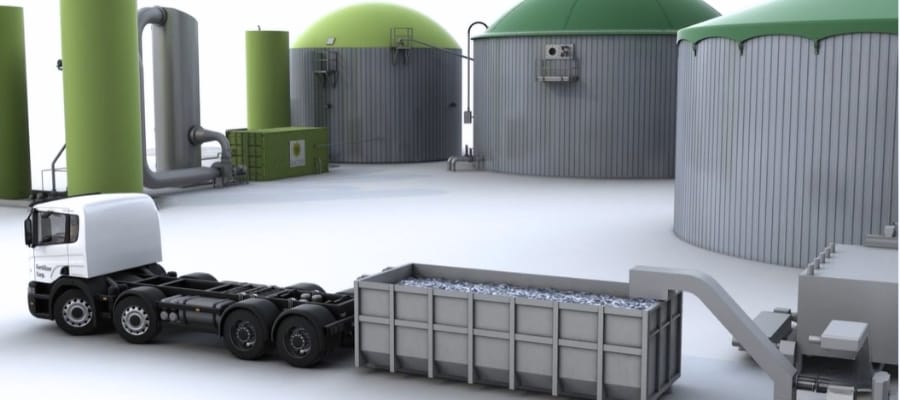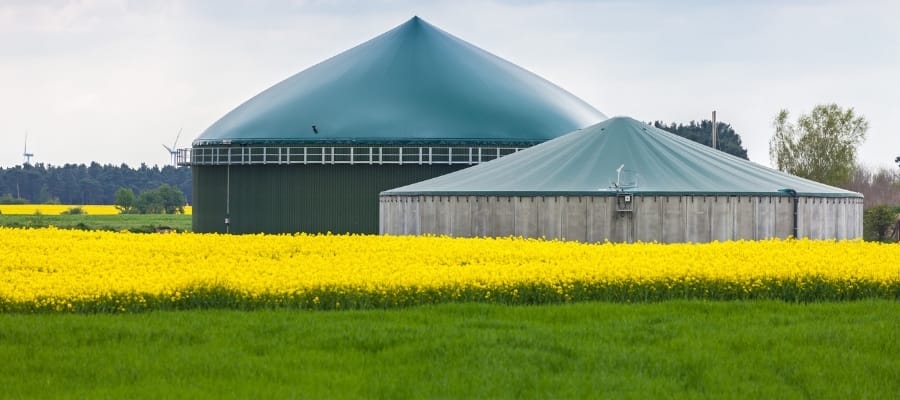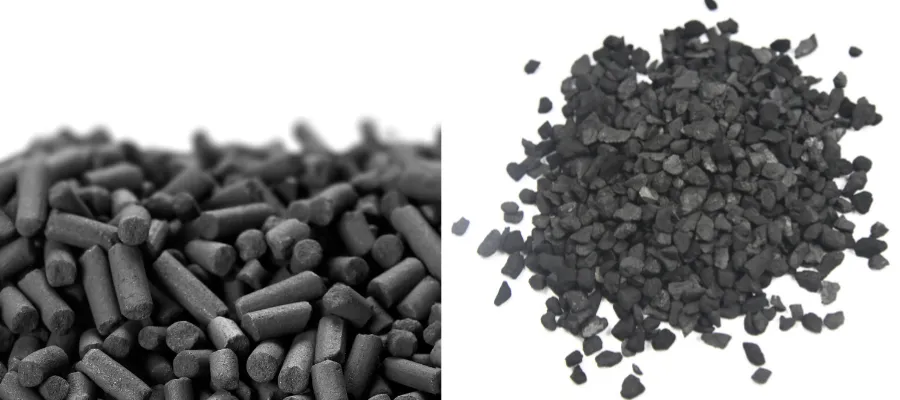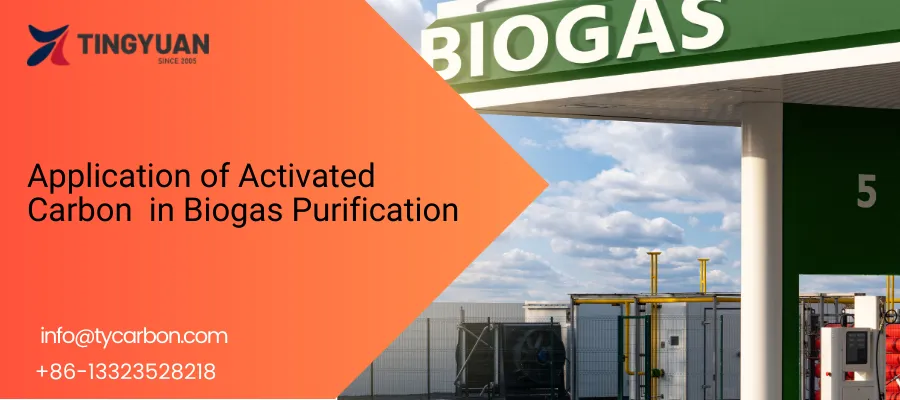Biogas, as a clean and renewable energy source, is highly regarded for its environmental benefits and wide applications. It can effectively reduce greenhouse gas emissions and provide a sustainable solution for energy production.
However, biogas typically contains various impurities such as hydrogen sulfide, ammonia, and volatile organic compounds, which can corrode equipment and pose risks to both the environment and human health.
To improve the quality and safety of biogas, effective purification is essential. Activated carbon, with its excellent adsorption properties, becomes an indispensable material in the biogas purification process.
This article will delve into the application of activated carbon in biogas purification, hoping to assist those involved in biogas treatment.
Necessity of Biogas Purification

As a clean and renewable energy source, biogas has a wide range of applications. It can be directly burned for heating, power generation, or purified into biomethane for use in transportation and other fields.
However, untreated biogas contains numerous impurities, such as hydrogen sulfide, carbon dioxide, water, siloxanes, halocarbons, and ammonia, which negatively impact biogas utilization:
- Equipment Corrosion: Hydrogen sulfide is highly corrosive and can severely damage biogas pipelines, compressors, burners, and other equipment, shortening their service life.
- Reduced Biogas Heating Value: Inert gases like carbon dioxide and nitrogen reduce the heating value of biogas, affecting combustion efficiency.
- Environmental Pollution: Combustion of hydrogen sulfide produces harmful gases like sulfur dioxide, polluting the atmosphere.
- Human Health Hazard: Hydrogen sulfide is a highly toxic gas; high concentrations can cause serious harm to human health.
Therefore, it is essential to purify biogas during production and utilization to remove pollutants like hydrogen sulfide and ammonia, ensuring that biogas meets the requirements for subsequent use while protecting downstream equipment from corrosion.
Principle of Activated Carbon in Biogas Purification
Activated carbon is a carbon material with a highly developed pore structure and a large specific surface area, exhibiting excellent adsorption performance. It can effectively remove hydrogen sulfide, siloxanes, volatile organic compounds, and other impurities from biogas through physical adsorption and chemical adsorption.
The mechanism mainly includes the following aspects:
Firstly, based on Van der Waals forces and other intermolecular forces, impurities such as hydrogen sulfide and volatile organic compounds in biogas are adsorbed into the pores of activated carbon, achieving physical adsorption.
Secondly, the functional groups on the surface of activated carbon can chemically react with specific impurity molecules. For example, KI-impregnated activated carbon can oxidize hydrogen sulfide to elemental sulfur and fix it on the surface of activated carbon, achieving chemical adsorption.
In addition, activated carbon can act as a catalyst, reducing the activation energy and accelerating the chemical transformation of certain impurities, such as promoting the oxidation of hydrogen sulfide to elemental sulfur, thereby improving purification efficiency.
Advantages of Activated Carbon in Biogas Purification

Activated carbon is widely used for its high efficiency, economic viability, and environmental friendliness in the treatment of biogas. It removes harmful impurities through adsorption, ensuring biogas quality meets subsequent usage requirements.
Here are the main advantages of activated carbon in biogas purification:
Strong Adsorption Performance
Activated carbon has a highly developed pore structure that provides numerous adsorption sites for gas molecules. Chemically modified activated carbon can further enhance its adsorption capacity for harmful gases like hydrogen sulfide and ammonia.
Durability and Regenerability
Activated carbon has a long service life and can be reused, significantly reducing operational costs.
Having understood the principles and advantages of activated carbon in biogas purification, let’s explore which types of activated carbon are best suited for this application.
Get a competitive quoteSelecting Activated Carbon for Biogas Purification

In biogas purification, different types of activated carbon are widely used. Selecting the appropriate activated carbon based on its characteristics and application scenarios is crucial. Here are some common types of activated carbon and their specific applications in biogas purification:
Conventional Activated Carbon
This type of activated carbon primarily removes harmful gases like hydrogen sulfide through physical adsorption. Hydrogen sulfide molecules are adsorbed through the microporous structure of activated carbon and interact physically with the carbon surface, effectively separating hydrogen sulfide. Common types of Conventional activated carbon include:
- 4mm CTC60 Extruded Activated Carbon: Designed for air and gas purification applications, produced by high-temperature steam activation of bituminous coal. This results in a porous material with a high surface area, capable of adsorbing a wide range of impurities and harmful gases such as hydrogen sulfide.
- 4×10 Granular Activated Carbon: Due to its unique pore structure, it provides a large surface area for gas contact, enhancing adsorption efficiency for various impurities.
Impregnated Activated Carbon
In biogas purification, impregnated activated carbon such as potassium hydroxide-impregnated activated carbon and potassium iodide-impregnated activated carbon is commonly used.
This special type of activated carbon enhances its adsorption performance by mixing or impregnating the carbon with certain chemicals (impregnating agents). This treatment significantly improves the carbon’s ability to adsorb specific pollutants and effectively remove harmful substances from biogas.
Get a competitive quoteReady to Purchase?
Activated carbon is a highly efficient, economical, and environmentally friendly material for biogas purification, playing a crucial role in promoting the efficient utilization and sustainable development of biogas energy. Selecting high-quality activated carbon products is vital for purifying biogas.
Our activated carbon products undergo rigorous testing to ensure efficient utilization of your biogas. If you need further consultation or wish to learn more about our products, please contact us. We are dedicated to serving you.
Whatsapp: +86-13323528218
Email: info@tycarbon.com

